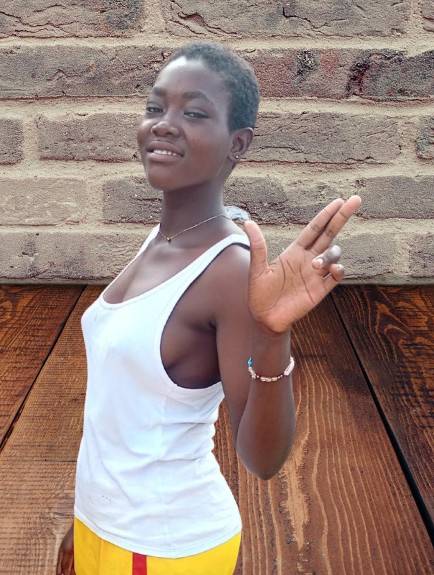FINDINGS OF THE COMMITTEE
The terms of reference in this enquiry appear to be very simple but to the Members of this Committee so many important issues are involved that it will not be enough to go straight to the question of whether Abugurago Azoka has been customarily elected or appointed and installed the Chief of the Kusasi Area.
In the first place, Abugurago Azoka is a Kusasi man and no Kusasi man has ruled as Chief of Bawku in the last 150 years. The question of whether he had been elected or appointed chief of the area or not after so many years of Mamprusi rule in Bawku is a matter which requires more detailed explanation and comment.
Chiefs had to be produced, however, and labourers to work on the new Station Buildings. Thus in some places like Teshie and Tanga, the most important Tindanas were pushed forward as chiefs by the British but where the Tindanas proved weak and inefficient, chiefs had to be imported from Mamprusi. The poor Kusasis had to accept these imported chiefs but their feelings can best be described by the words of J.K.G Syme, who wrote:-
“They did not object so some of their own Tindanas going to the Naab with a handsome present, and bringing back from Nalerigu in return powerful addition to their fetishes, this benefited everybody, but for Mamprusis to be sent to order them about was quite contrary to all their ideas on the subject. The five chiefs, (Sinnebaga, Binduri, Bawku, Teshie and Tanga) had but little influence except among their own immediate followers and themselves are the first to admit this”.
This has been the condition of chieftaincy in the Kusais area generally and the Bawku town particularly during the last century and a half. But the Kusasi man has not been asleep. He has been marching with the time and his ideas of freedom and justice have evidently been growing. He has been organizing and agitating. He has been complaining and sometimes kicking with impatience. At last, a stage has been reached.
Temple said in his “Native Races and their Rulers” that when foreigners invade a country one of these three things invariably happens:-
1. The natives of the country become absorbed by the invaders.
2. The invaders become absorbed by the natives of the country.
3. The natives of the country regain their freedom and expel the invaders.
J.K.G Syme commenting on these stages of development of an invaded country and comparing and contrasting with Kusasi said that the third process nearly happened in Kusasi. Members of this Committee will go further by saying that the second has happened and the third process is now happening.
Evidence given before us showed that the Mamprusi Rulers never bring women from Mamprusis but are contented to marry from the Kusasis. Those who call themselves Mamprusi Princes in Bawku now all have Kusasi Mothers and in fact, there is hardly anyone who can claim to be wholly Mamprusi by blood relationship. Thus the negatives of the country (Kusasi) have absorbed the Mamprusi invaders.
The third process is also happening fast in Bawku and the surrounding areas now. The Kusasis appear to be the masters of the situation. They are as they have always been, in the overwhelming majority as far as population is concerned. They have their chiefs, recognized or not recognized by Government.
They have their educated folk just as any other tribe in the North. They have under the leadership of their own educated sons and one or two Kusassis launched a very powerful body called the Kusasis Youth Movement which has a membership of over 80,000. Their influence in the Kusasi area is so great that the Mamprusi Princes seem to be in danger. But for the fear of Nayiri who is considered very powerful in Religious aspects as having descended from the Gbewaa, the most powerful fetish in the area, anything could have happened to the Mamprusi ruler in the Kusasi area. Our opinion is therefore that the Kusasis are regaining their freedom and are gradually expelling their Mamprusi invaders.
The Committee thinks that the present state of affairs in the Kusasi area has been accelerated if not encouraged by the Mamprusis who still hold the opinion that the average Kusasi Man has no intelligence. The Mamprusi chief still believes that the Kusasis are not capable of ruling themselves and that the Kusasis must acknowledge the Mamprusis as their rulers and masters, It must be noted that their attitude towards the Kusasis was noticeable in the whole of the evidence given by the Mamprusis was deplorable and leaves much to be desired. In Yiremia’s own words while giving evidence before the Committee:-
“The area is mainly populated by the Kusasis except that we are also here, (The Mamprusis) the chiefs and Princes I do not think that a Kusasi should rule the Kusasis. They did not begin with chieftaincy. They only believe in the production of food in plenty and eating”. Further on he said:-
“I was born here but I have never heard the word “Tindana”. No one can own land here if the Nayiri says no. The crowd at Nalerigu on the day of my appointment was a mixture of Mamprsis, Moshies and Hausas. My installation is complete at Nalerigu. After the ceremony, I proceeded to Kusasi to rule the Kusasi and other people in the Kusasi area. Since I have got what I want, I am not interested in any other case. It is not right to rule people who do not want me. I was appointed by the Nayiri and it is our custom. It does not matter what the Kusasis say, I have been appointed their chief. I came back to rule. If the Nayiri says I am good then I am good. It does not matter what any man says only the Members of my family can be Bawku-nabas”.
Such an attitude towards the Kusasis surely is an incentive towards a more strenuous struggle towards political and social emancipation of the Kusasis tribe. No one in present Ghana, no matter what part of it, North or South, East or West would like to be ruled by a chief of another tribe appointed by the head of his tribe to go and rule such other tribes. No tribe, however weak, would pay with complacence tributes of cows, sheep, horses, guinea fowls and millet every year to the head of the State who unfortunately happens to be of a different tribe. The Committee thinks that such practices are the main causes of the Kusasi agitation and their demand is justifiable too. From the evidence, the Members of the Committee have come to the conclusion that the average. Mamprusi man in Kusasi area is princely sort of person who looks down upon the Kusasis and demands that he must be acknowledged as a superior person. Evidence has been given of the constant demand by the Mamprusi rulers for cows, sheep, guinea fowls and millet as well as free labour from the Kusasis.
Evidence has given of whipping and all kinds of maltreatment meted to the Kusasis if they failed to satisfy the demands of their masters. To have tolerated and endured the sort of treatment for such a long time may be described as cadaverous obedience on the part of the Kusasis, but no doubt they have been watching for the opportunity to bark out.
Perhaps one of the causes of the delay in going into action was due to lack of proper leadership, for it appears that the sanctity attached by these tribes to the person and position of Nayiri would not permit anyone to rise against or incur the displeasure of that spiritual as well as political head of the Mamprusi State.
The inauguration of the Kusasi Youth Movement which has a Membership of over 80,000 people including chiefs and educated Kusasis and the kusassis has brought themself together and made them stronger than ever. It is no wonder therefore to find them agitating hard and struggling to throw off the Mamprusi yoke.
The death of Na Awuni, the Chief of Bawku and the Head Chief of the Kusasi area since 1934 brought the opportunity to the watchful Kusasis. On the 6th of June, 1957 while the Nayiri was going through the various ceremonies connected with the appointment of a Bawku-Naba in the person of Mahama Yiremia, the Kusasis had gathered in overwhelming numbers in Bawku, also electing and installing
Abugurago Azoka as the Chief of Bawku and the Head of all the Canton Chiefs in the Kusasi area.
According to the evidence on record which is not rebutted, Abugurago is the direct descendant of the former rulers of Bawku and the owners of the land. No doubt as to the Tindana of Bawku land, they ruled as chiefs or headmen of the local tribesmen until the Mamprusis arrived, followed sooner or later by the Whiteman.
Yiremia has admitted to knowing Abugurgo’s grandfather and father as the occupiers of the land around the Government area of Bawku even though he would not admit that they were the owners. A document has been tendered showing that the Government acknowledges the claim of Abugurago as the Tindana or landowner of the area occupied by the Government Post Houses and Court Houses.
We are satisfied that Abugurago is an original landowner having control of at least a portion of the land occupied by Bawku Town.
According to the evidence, Abugurago Azoka was on that day selected by his people unopposed and the necessary custom and ceremonies were gone through. We have received and read very many petitions and representations from all parts of the Kusasi area to the effect that Abugurago’s election and installation have received the approval of the Kusasis. It is true that there are few people who for fear of the Nayiri would not readily subscribe their signatures to the new move, but it is beyond doubt that these men will soon realize the fact that they had better rally around their tribal head or be thrown out.
A few chiefs who have been hesitating to join in the struggle for emancipation have been declared and enskinned and new canton chiefs installed by the Kusasis.
The step taken by the Kusasis in the direction has, we understand, been challenged by the Mamprusi rulers and is now the subject matter of prosecution still in Court. We make no further comments on this. We are, however, satisfied that the matter is a part of the general struggle among the Kusasis to throw off the Mamprusi ruler and possibly anyone who opposes the move.
The Committee is satisfied that the old method of appointing a chief to go to Bawku and rule the Kusasi is greatly resented by the Kusasis. We felt that it is undemocratic as is dictatorial for the Nayiri who claims to be the nominal owner of the land to send one of his Mamprusi subject to rule the Kusasis as their chief. We feel that the Kusasis would evolve politically and socially as well as economically better under their own chief than under an imported chief whom they resent.
The recognition of a Kusasi chief will no doubt receive the approval of all who know the internal affairs of the Mamprusi State as it is today.
Finally, we humbly pray to report to your Excellency that Abugurago Azoka has been customarily elected and installed as the Chief of the Kusasi Area.
Sgd. 1. S.D. OPOKU-AFARI (CHAIRMAN)
2. NANA YAW AGYEMAN BADU (MEMBER)
(DORMAHENE)
3. LURE KANTON III (TUMUKORO)
(MEMBER)
complied by a Member of the kusaug Youth Movement
Ayongo Awinbe Iddrisu
madiidrisu@gmail.com 0249879923




No comments yet
Be the first to share your thoughts!